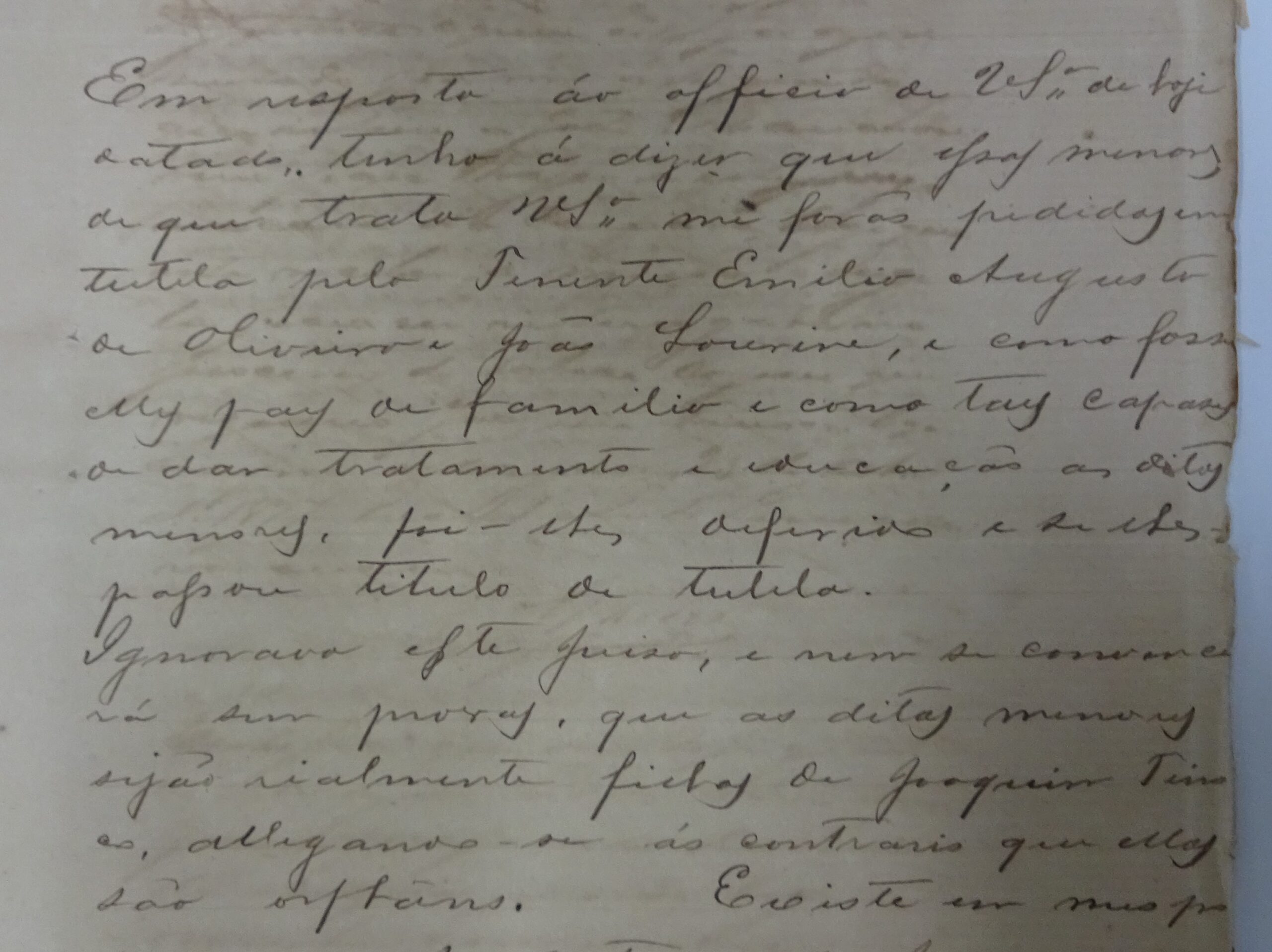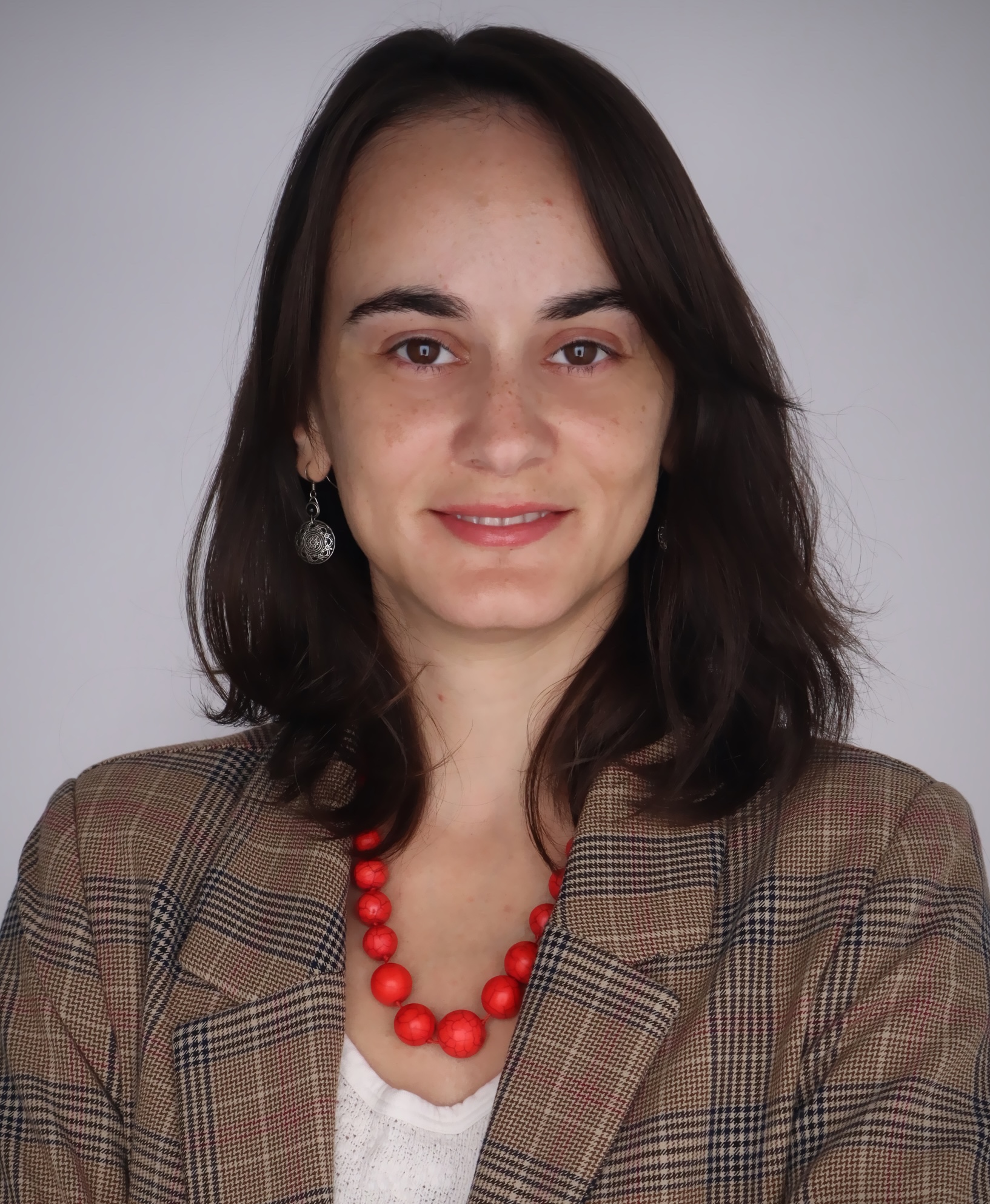June 2025
Unveiling Brazil’s Hidden Histories of Indigenous Child Separation
 Photograph of page 21 from an 1877 court case document regarding Angela and Benedicta
Photograph of page 21 from an 1877 court case document regarding Angela and Benedicta
Morais Soares, Ana Luiza. 2024. “Child Separation and the Stolen Generation of Brazil: Indigenous Peoples’ (Un)Freedom in Amazonia.” Latin American Research Review, 1–17. https://doi.org/10.1017/lar.2024.56
In 1877, two Indigenous girls, Angela and Benedicta, were kidnapped. Taken from the countryside of Amazonas province, the girls were brought to Manaus, probably to work as domestic servants in slave-like conditions. The girls had living parents who were legally married and, although humble, had the means to raise and educate them. However, this did not protect the kidnap victims from being considered orphans and having their guardianship rights passed to strangers.
How did this happen? In “Child Separation and the Stolen Generation of Brazil: Indigenous Peoples’ (Un)Freedom in Amazonia,” Ana Luiza Soares examines the systemic removal of Indigenous children in 19th-century Brazil. This article reveals how legal ambiguities and racialized definitions of orphanhood facilitated the exploitation of Indigenous, Black, and mixed-race children as unpaid domestic laborers, known as criadas de casa.
Soares delves into the complexities of citizenship and guardianship laws, illustrating how these frameworks were manipulated to legitimize child separation and perpetuate colonial hierarchies. Orphanhood emerges as a key category in these separations—a racialized concept used to justify the kidnapping of children who had living and capable parents. Through a compelling case study of the 1877 abduction of sisters Angela and Benedicta, the article highlights the resilience of Indigenous families who navigated and contested these oppressive systems. The work traces how relational power, exercised through networks of paternalism and patrimonialism, enabled the profitable circulation of Indigenous children as domestic laborers in the households of Manaus’s elite. The narrative underscores the enduring legacy of these practices, linking historical injustices to contemporary issues of structural racism and labor exploitation in Brazil.
Soares’ scholarship offers a nuanced perspective that challenges prevailing narratives and calls for a reevaluation of historical and contemporary policies affecting Indigenous communities. This work stands out for its transdisciplinary approach, weaving together legal analysis, historical context, and social critique to shed light on a neglected facet of Brazil’s past. By framing these child separations within the broader discourse of “stolen generations,” Soares not only contributes to Latin American historiography but also engages with global conversations on colonialism and Indigenous rights.
Find Morais Soares’ article here
 Ana Luiza Morais Soares is an Assistant Professor of Indigenous Histories and Cultures at Universidade Federal de Ouro Preto, Brazil. She is a historical anthropologist with a PhD in Anthropology from University of Illinois at Chicago. Her research focuses on the history of Indigenous child separation and labor exploitation in the Brazilian Amazon, practices which played a significant role in ethnic identity erasure. She connects this history with how today’s Brazilian Indigenous communities are harnessing social media to counteract and reverse this erasure, reclaiming their identities in our digital age.
Ana Luiza Morais Soares is an Assistant Professor of Indigenous Histories and Cultures at Universidade Federal de Ouro Preto, Brazil. She is a historical anthropologist with a PhD in Anthropology from University of Illinois at Chicago. Her research focuses on the history of Indigenous child separation and labor exploitation in the Brazilian Amazon, practices which played a significant role in ethnic identity erasure. She connects this history with how today’s Brazilian Indigenous communities are harnessing social media to counteract and reverse this erasure, reclaiming their identities in our digital age.
Find out how to submit your work to the Spotlight on Scholarship
Visit the Spotlight Archives for past Spotlight Research
